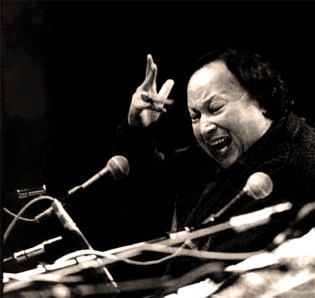A Quote by Hazrat Inayat Khan
The religion of the Sufi is the religion of the heart. The principal moral of the Sufi is to consider the heart of others, so that in the pleasure and displeasure of his fellow-man he sees the pleasure and displeasure of God.
Related Quotes
Be careful how you do one man a pleasure which must needs occasion equal displeasure in another. For he who is thus slighted will not forget, but will think the offence to himself the greater in that another profits by it; while he who receives the pleasure will either not remember it, or will consider the favour done him less than it really was.
Like the bat, the Sufi is asleep to 'things of the day' - the familiar struggle for existence which the ordinary man finds all-important - and vigilant while others are asleep. In other words, he keeps awake the spiritual attention dormant in others. That 'mankind sleeps in a nightmare of unfulfillment' is a commonplace of Sufi literature
Christian scholars often say that Sufi theories are close to those of Christianity. Many Moslems maintain that they are essentially derived from Islam. The resemblance of many Sufi ideas to those of several religious and esoteric systems are sometimes taken as evidence of derivation. The Islamic interpretation is that religion is of one origin, differences being due to local or historical causes.
If the heart be chiefly and directly fixed on God, and the soul engaged to glorify him, some degree of religious affection will be the effect and attendant of it. But to seek after affection directly and chiefly; to have the heart principally set upon that; is to place it in the room of God and his glory. If it be sought, that others may take notice of it, and admire us for our spirituality and forwardness in religion, it is then damnable pride; if for the sake of feeling the pleasure of being affected, it is then idolatry and self-gratification.
At the heart of our desires is eternal happiness without the slightest hint of misery. You could say that we are pleasure seekers; however, seeking pleasure from the objects of our five senses produces fleeting moments of pleasure whereas, pleasure of one's self, a soul, is eternal and ever-increasing pleasure.
By the duty to be happy, I thus refer to the ideology... that urges us to evaluate everything in terms of pleasure and displeasure...on the one hand, we have to make the most of our lives; on the other, we have to be sorry and punish ourselves if we don't succeed in doing so. This is a perversion of a very beautiful idea: that everyone has a right to control his own destiny and to improve his life.



































